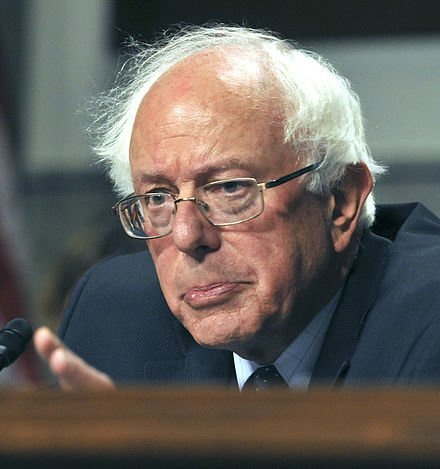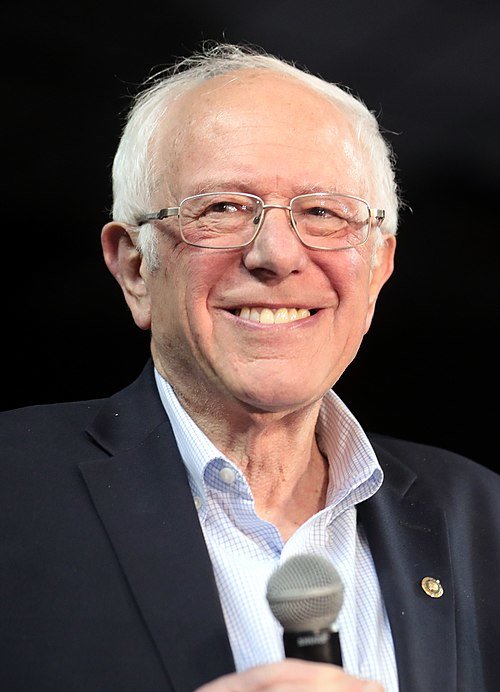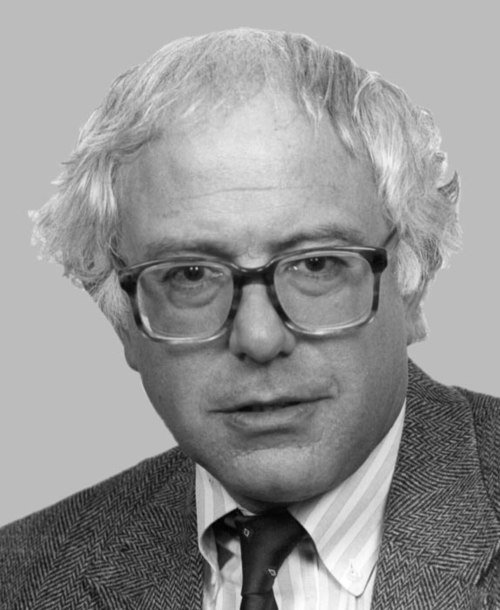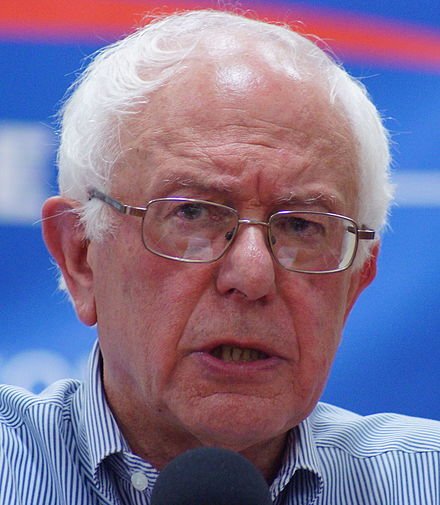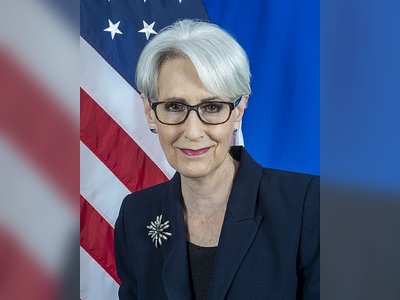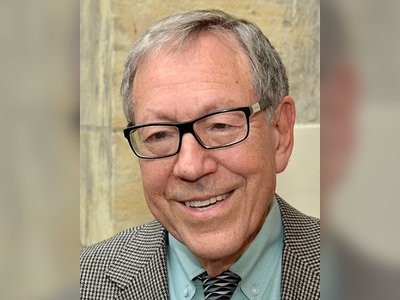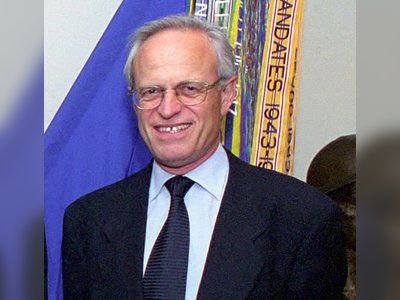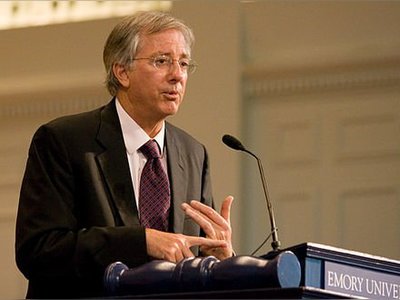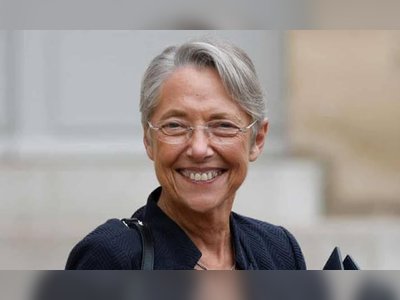Bernard "Bernie" Sanders
Bernard "Bernie" Sanders (born September 8, 1941) is an American Jewish politician who has served as a United States Senator from the state of Vermont since 2007. Sanders holds the record for the longest-serving independent member of Congress in American history. Despite two unsuccessful attempts, in 2016 and 2020, Sanders sought the Democratic Party's nomination for the presidency before retiring from the presidential race.
As a self-described democratic socialist, Sanders is known for his staunch advocacy for economic equality. In domestic policy, he generally supports workers' rights, universal healthcare, paid maternity leave, tuition-free higher education, and an ambitious economic plan aimed at addressing global warming.
In foreign policy, Sanders advocates for reducing military budgets and seeking more diplomatic and cooperative solutions. Additionally, he believes in placing greater emphasis on workers' rights and environmental concerns when engaging in international trade agreements. Many observers have noted the significant impact of his worldview on Democratic Party politics since his 2016 presidential campaign.
Sanders was born and raised in the Brooklyn borough of New York City. While still a student, he was an active organizer during the African-American civil rights movement. After moving to Vermont, he was elected as the mayor of Burlington in 1981, winning by just ten votes, and was re-elected three times. In 1990, he won a seat in the U.S. House of Representatives, becoming Vermont's sole representative. He was re-elected in 2012 and 2018.
In April 2015, Sanders announced his candidacy for the Democratic Party's presidential nomination for the 2016 election. Despite low initial expectations, he gained support from 23 states and secured approximately 43% of the vote, compared to Hillary Clinton's 55%.
His campaign garnered attention for its enthusiastic supporters and its refusal to accept large financial donations from corporations, the financial industry, and Super PACs. In July 2016, he officially endorsed Hillary Clinton against Republican candidate Donald Trump while encouraging his supporters to continue the "political revolution" his campaign had started. In February 2019, Sanders announced his second bid for the Democratic Party's presidential nomination for the 2020 election.
On April 8, 2020, Sanders announced his withdrawal from the presidential race.
Early Life:
Bernie Sanders was born in Brooklyn, New York. His father, Elias Sanders-Gutman, was born on September 19, 1904, in the town of Słopnice, Galicia (then part of the Austro-Hungarian Empire, now in Poland), to a Jewish family. In 1921, at the age of 17, Elias immigrated to the United States and changed his family name to Sanders.
His mother, Dorothy (née Glassberg), was born in New York City on October 2, 1912, to Jewish immigrants from Poland (her father was born in Radziń Podlaski) and Russia. Sanders has stated that his upbringing in a working-class family instilled a strong class consciousness in him, leading him towards socialism. Unfortunately, all of his father's family in Poland perished during the Holocaust.
The family was of modest means, and financial concerns were a constant reality. Sanders claims that this upbringing played a significant role in shaping his socialist beliefs. His brother, Larry Sanders, is a former Green Party politician in England and Wales, representing Oxfordshire County Council.
Sanders attended James Madison High School in Brooklyn, where two other Jewish senators, Chuck Schumer (Democrat from New York) and Norm Coleman (Republican from Minnesota), also studied. A year after graduating from high school, his mother passed away at the age of 46, and his father passed away three years later.
Sanders earned a bachelor's degree in political science from the University of Chicago in 1964. During his time at the university, he joined the Young People's Socialist League, the youth organization of the Socialist Party of America, and was involved in the civil rights movement, organizing protests against racial segregation on college campuses through the Congress of Racial Equality and the Student Nonviolent Coordinating Committee.
Under his leadership, the University of Chicago's chapters of both movements merged into a single unified entity. In January 1962, Sanders led a protest march to the University of Chicago's administration building to oppose the segregationist policies of University President George Wells Beadle.
"We feel it is an intolerable situation when Negro and white students of the university cannot live together in university-owned apartments," Sanders stated during the demonstration. Subsequently, Sanders and 32 other students occupied the university's administration building and camped outside the president's office, marking the first-ever sit-in in Chicago's history. After weeks of sit-ins, Beadle and the university formed a commission to investigate racial discrimination on campus.
John Maher, a member of the Congress of Racial Equality, described Sanders in 2016 as "a good guy, good person, and a good Jew from Brooklyn, but he was not particularly charismatic. But one of his strengths is he was able to work with a broad section of people, even though he didn't agree with it." In 1963, Sanders participated in the March on Washington for Jobs and Freedom, where Martin Luther King Jr. delivered his iconic "I Have a Dream" speech. Later that summer, he was arrested for resisting arrest during a protest against racial segregation in public schools in Chicago and was fined $25 (equivalent to $209 in 2019 dollars).
Sanders' political career began in 1971 when he joined the Liberty Union Party, a third-party organization that opposed the Vietnam War. He ran for various offices under the Liberty Union Party banner but was unsuccessful. In 1979, he left the party.
Two years later, Sanders ran as an independent with the support of Vermont's progressive party leaders for the mayor of Burlington, Vermont, and won by a narrow margin of just 12 votes, unseating the incumbent who had held the office for six terms. Sanders was re-elected to the position three more times, defeating both Democratic and Republican candidates, serving a total of eight years as the city's mayor. While his Progressive Coalition never held a majority in the city council, Sanders had enough supporters to govern effectively in opposition to the major parties.
Please let me know if you would like more information about Bernie Sanders' political career or any other aspect of his life.
- ברני סנדרסhe.wikipedia.org
